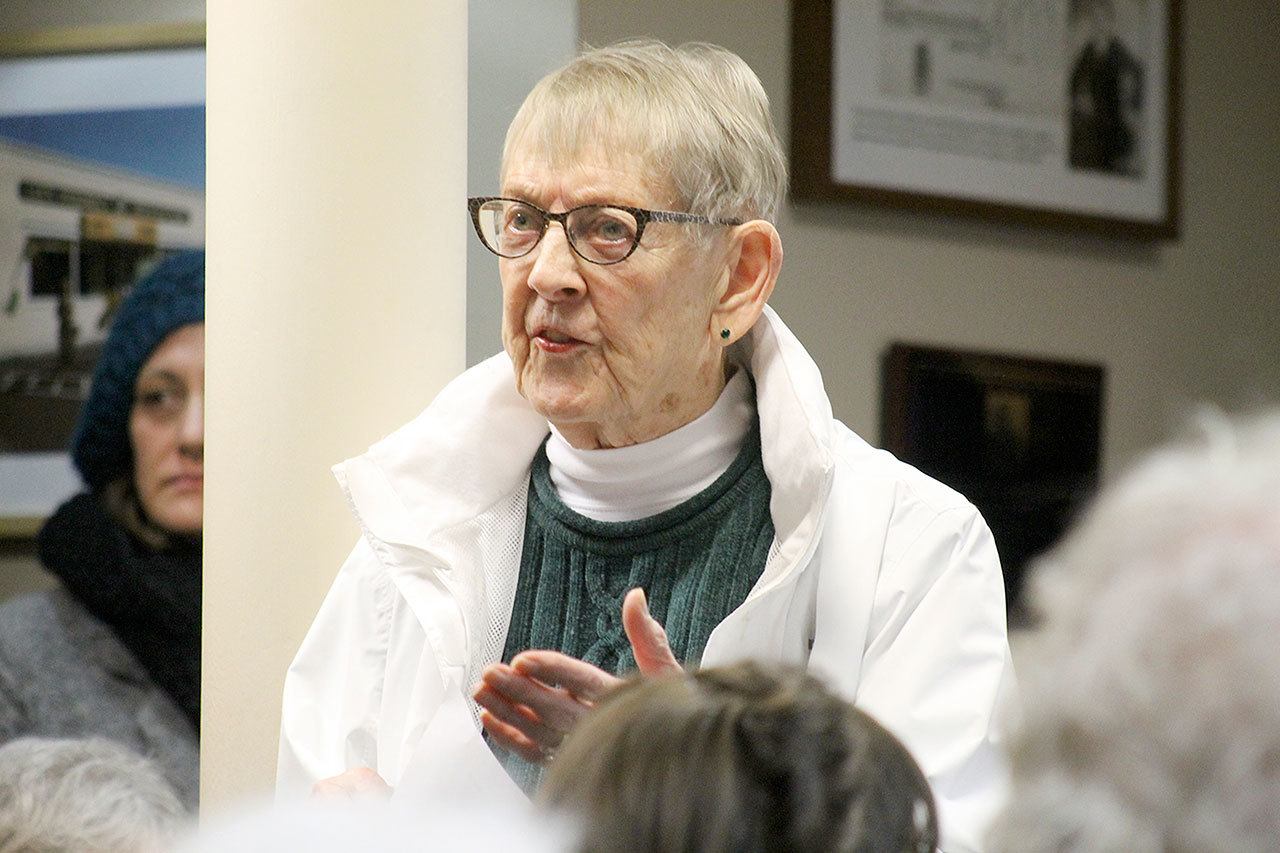Monday night’s Langley City Council meeting did not include a decision on sanctuary status, but marked the first meeting where those opposed to the idea publicly spoke.
The Langley City Council opted not to vote on a resolution or sanctuary city status because not all members were present; City Councilman Thomas Gill was out sick. The resolution titled “A resolution of Inclusivity and statement of principles and values” that was drafted by the city and built upon the ethics board’s recent recommendation is now set to be addressed at the city council’s next meeting on Feb. 21.
Despite the decision to table the issue, the city council once again took public comment. Given the standing room-only crowd, the city council passed a motion at the beginning of the meeting to limit the comment period to one hour. The motion also gave preference to city residents; Mayor Tim Callison selected from those who raised their hands to speak.
Attendees who did not live within city limits were asked to wait until all Langley residents had commented before it was their turn. Advocates of the proposal still outnumbered those in opposition, as was pointed out by one Langley woman who spoke against it.
“Well, I kind of feel like a fish out of water here,” Marilyn Broggie said. “I’m against the whole thing.”
“First of all, it’s already illegal. And second thing, I don’t want to harbor any criminals in our city, and that tends to happen when you have a sanctuary city.”
Broggie was also concerned about a lack of housing for the homeless population and did not see the community being fit to take on more people, and said that she did not want to see the police department’s “hands tied” as to what it can and cannot to do in regard to federal or local law.
Several attendees pleaded for a chance to respond to Broggie, but Callison said it wasn’t that kind of meeting.
“No, this is not a response,” Callison said. “…I’ll remind you that this is a period where the council is taking comments from the citizens. It’s not a period that is designed for debate or debate among audience members with each other. It’s for the council to take information from the citizens to help them make their decisions.”
City Councilwoman Ursula Shoudy said that it was crucial to the discussion process that respect be given to everyone who comments.
“We need to make sure everyone feels safe in this room to make their comment, whether it’s for or against,” Shoudy said. “…Our neighbors might have different opinions than our own.”
Fran Johnson, another Langley resident, agreed with Broggie and added that she was flabbergasted by how much the sanctuary city discussions have escalated.
“How this got so far is beyond me,” Johnson said. “I’m not politically smart, but I know what I know and I like what I like, and I know right from wrong and I know what I feel. The city hasn’t got the money to do this.”
Robin Black, a former city councilwoman and Callison’s wife, was also selected to speak. She pointed out that the city does not have a jail nor a holding cell and asked the city council what good it would do.
“If we become a sanctuary city, like a lot of people are asking, doesn’t that put a target on everyone’s backs?” Black said. “Because, then, now we’re pegged as having a sanctuary city when in fact we can’t do anything that everybody is saying that they want us to do because we don’t hold anybody.”
“It doesn’t make sense to me. Not that we shouldn’t be compassionate, loving and welcoming; I think you’re asking for problems when there isn’t any here. We don’t do what everybody is so afraid of.”
Attendees in favor of Langley becoming a sanctuary city touted many of the same reasons for becoming a sanctuary city as those stated in previous meetings, such as how adopting the policy could send a message to the Trump administration and that abiding by his promises to deport undocumented immigrants would be a poor example of humanity. They also urged others to attend a community meeting scheduled for 6 p.m. on Thursday night at Langley United Methodist Church, where the ramifications of adopting sanctuary city status will be discussed.
Langley resident Ed Anderson criticized the city’s resolution for a lack of attention to the concerns brought before them by advocates of Langley becoming a sanctuary city. He noted that the word “immigration” was the only noticeable difference between the ethics board’s recommendation and the city’s resolution.
“It seems to me that this is not a particularly useful document,” Anderson said. “I don’t see any reason for going ahead and making the resolution.”



